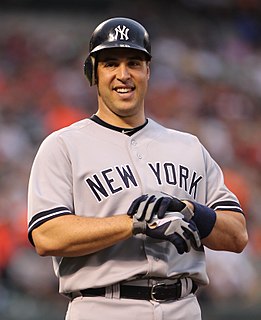A Quote by Paulo Coelho
Never laughing too loudly in a restaurant no matter how good the joke.
Related Quotes
I think one of my favorite pieces I've ever done on the show which was about Hezbollah Israel conflict in 2006 and it was very pointed. It was a beautifully crafted piece of satire and it's a weird thing to say but it had a joke in there about 9/11 and I remember the audience sort of laughing but also kind of not knowing how to respond to that joke and it was just so - and I remember the tension after we did this joke on the air and there was this palpable gasp in the audience, but they were also laughing. And I thought oh, wow, that is something that is not being said in the Zeitgeist.
No matter what I do on the baseball field, no matter how hard I try to be a good player, no matter how hard I try to be a good father or a good husband, I can never do enough. I can never be perfect in this world. But God's there to tell me that it's not what you do, it's whom you believe in and it's Him loving me.





































